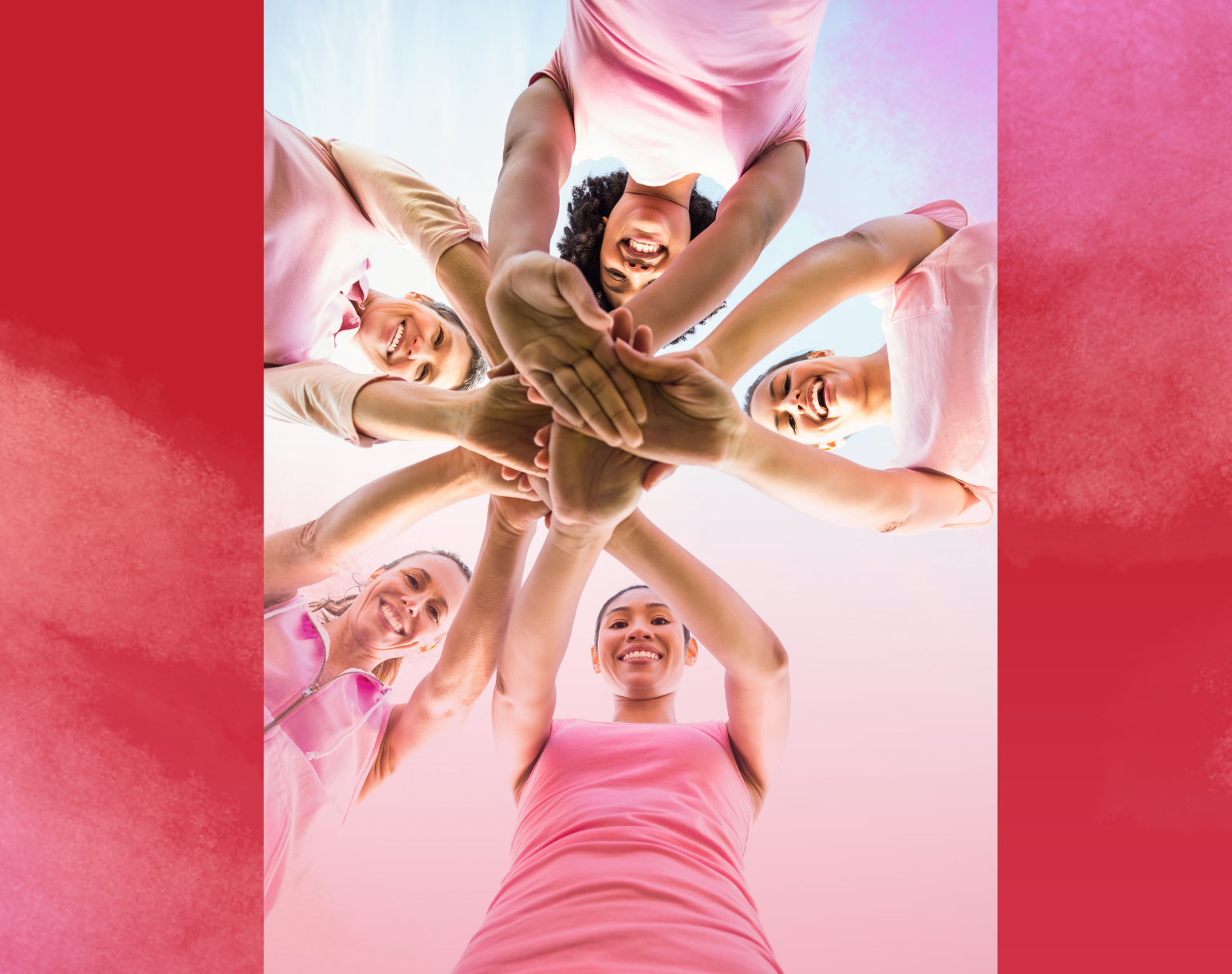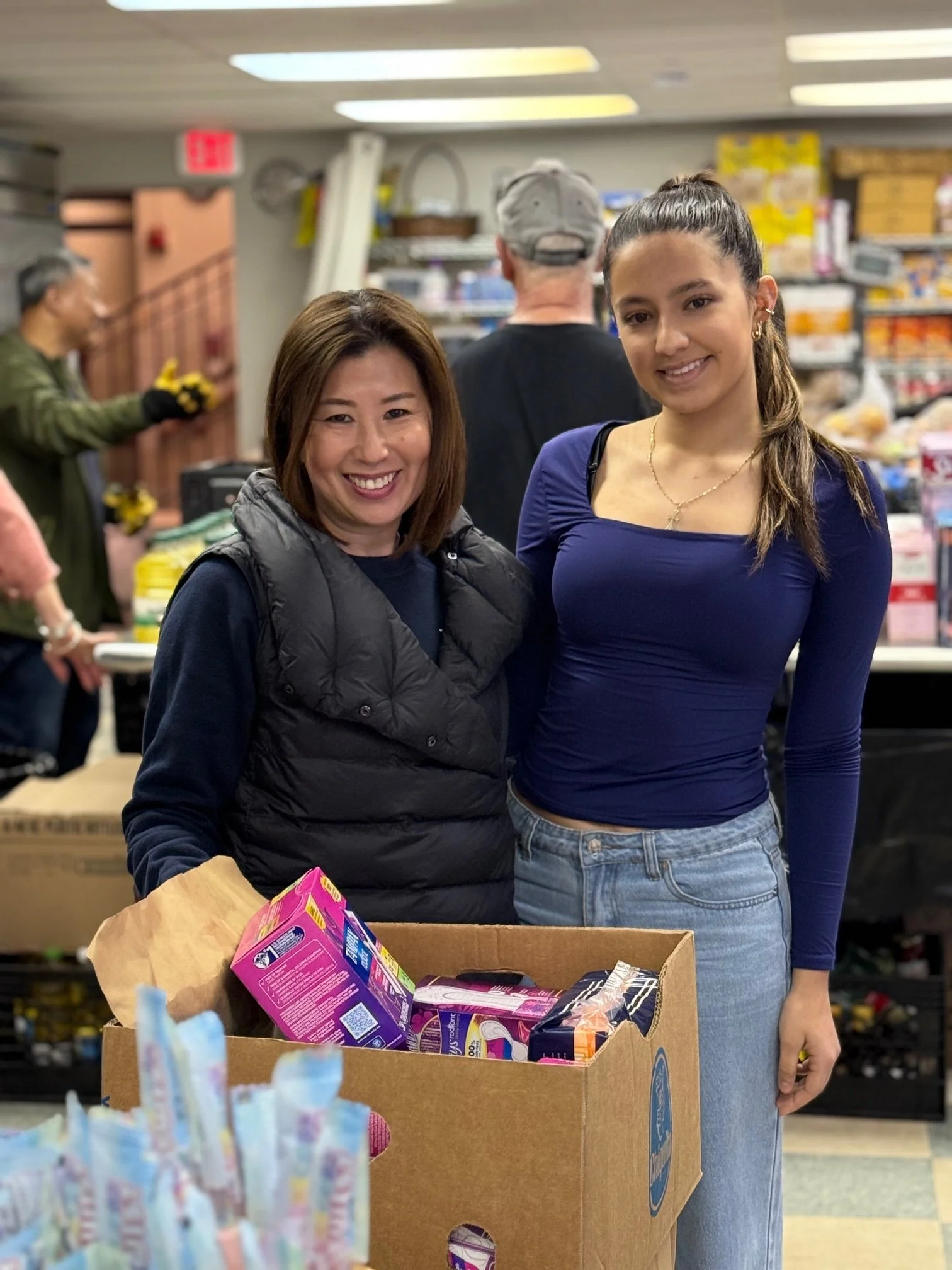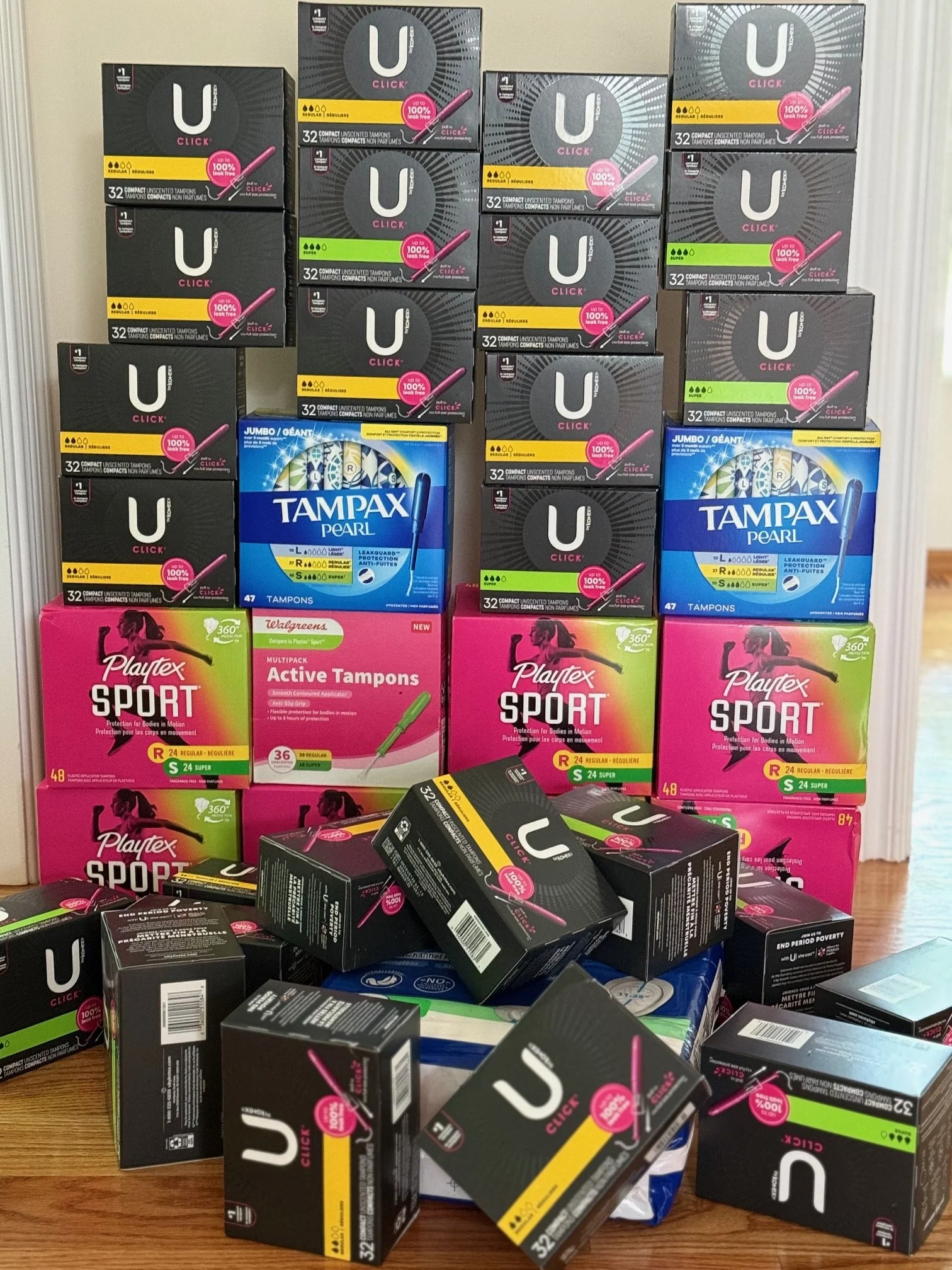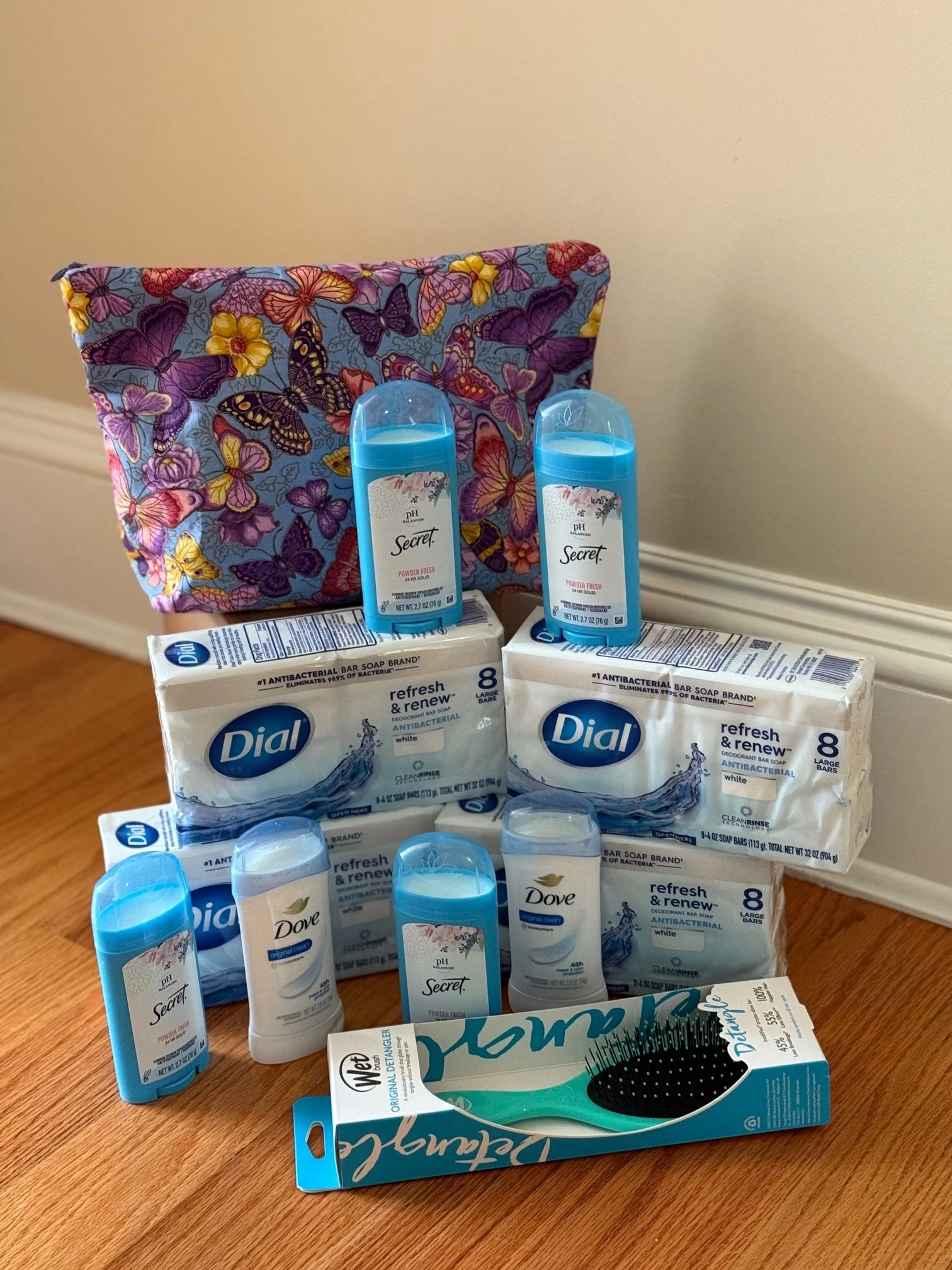
Cycle Of Care
A Girl Scout Gold Award Project
Cycle of Care is a Girl Scouts Gold Award Project - the highest honor in the journey of a Girl Scout.
I chose to focus on an issue I care deeply about: period poverty
Cycle of Care is dedicated to increasing access to essential period and personal care products for girls and women experiencing product insecurity. This project distributes period and personal care items such as period pads, tampons, soap, shampoo, deodorand, through food pantries, churches, and other community organizations. In addition, the project works to raise awareness about the issue of period poverty and the stigma that surrounds it and to provide clear, accessible information on where individuals can obtain personal hygiene products.
This project has led multiple fundraising and donation drives to support our communitiy, collecting and distributing over 250 boxes of period and personal care products to donate to local food pantries.
This website is part of this Gold Award Project and will serve as a an educational resource - a space to learn more about period poverty, take action, and contribute directly through an Amazon wishlist for product donations.
#cycleofcareinitiative
279
Donations and counting ….
United Stated Period Facts
Period and personal care poverty exists right here, in America, in our towns and neighborhoods. According to the National Organization of Women, on average, women spend about $20 on period products per cycle per woman. Two-thirds of the 16.9 million low-income women in the US could not afford period products and personal care products in the past year, with a half of them needing to choose between period products and food.
Limited financial resources among women and girls living in low-income communities prevent them from affording period products, leading to inadequate hygine. Many of them lack access to affordable period products , making it challenging to manage their period with dignity and contributing to stigma and sense of shame.
Food stamps cannot be used to purchase household cleaning supplies or personal hygiene products. Additionally, many food banks do not regularly stock these essential items that families need to maintain their health. While big period products makers have established community connections and periodically donate products to major food dictribution hubs, the amounts donated are inadequate and rarely, if ever, reach local food pantries. With community support, this initiative works to bridge this gap by collecting donations from local residents to provide these necessities to those in need.
While you can buy, using SNAP (Supplemental Nutrition Assistance Program) benefits, food items, including bread, fruits, vegetables, meats, fish, poultry, and dairy products… you can not buy toilet paper, diapers, toothpaste, shampoo, deodorant, or menstrual health products. (FYI, you can also use SNAP to buy sugary drinks, alcoholic mixers).
Most states carry a sales tax on menstrual products. (20 as of 4/2025)
According to the State of the Period 2023 survey women and girsl, almost a quarter of teens and one-third of women struggle to afford period.
A 2018 Always brand survey found nearly 1 in 5 American girls has missed school due to a lack of period protection.
A woman may use nearly 10,000 tampons in a lifetime.
Cycle of Care Initiative, A Girl Scout Gold Award Project
Delivering period and personal care items to the Shelter Rock Food Pantry, Manhasset/Great Neck, NY.
What is Period Poverty?
Period poverty is the lack of access to menstrual products, education, hygiene facilities, and proper support to manage periods. It affects millions of young girls and women in our country.
For those experiencing period poverty, something as simple as a pad or tampon can be out of reach. This often leads to using unsafe alternatives, or even skipping school, work, or important daily activities.
Period poverty isn’t just about hygiene, it’s about health, education, and equality. No one should have to feel ashamed or limited because they don’t have access to basic menstrual care.
By raising awareness and providing support, we can help eliminate the stigma and ensure that everyone has access to the products and knowledge they need to manage their period safely and confidently.
Why Food banks are needed?
Food banks are more than just places to get food; they are essential community lifelines. They ensure that individuals and families facing financial hardship can still access nutritious meals and basic necessities, thereby helping to reduce hunger and improve overall well-being.
Food banks also:
Fight hunger locally by providing reliable access to meals for those in need.
Reduce waste by collecting surplus food from stores, farms, and restaurants.
Offer more than food, often including hygiene products, diapers, and menstrual care items.
Respond quickly in crises, supporting communities after emergencies or unexpected challenges.
By supporting food banks, we strengthen our communities, reduce waste, and ensure that no one has to go without the essentials they deserve.
Beyond the Pantry
When most people hear the term food bank, they naturally think of canned goods, pasta, or other pantry staples. But food banks do far more than provide meals. They are a critical source for essentials like period products, soap, toothpaste, diapers, and other hygiene items.
These products are just as necessary for health and dignity as food, yet they are often overlooked in donations and in public awareness. Many families and individuals who visit food banks are also struggling to afford these basic necessities, which are not always covered by assistance programs.
By broadening the conversation beyond food, we can help ensure that food banks are equipped to meet all of the needs in our communities and push for these products to be more accessible to everyone.
Help Support Cycle of Care
You can make a real difference.
By donating period and personal care products through this Project’s Amazon Wishlist, you’ll be helping provide essential care items to women and girls who need them most ; whether they’re facing financial hardship, recovering from a crisis, or simply lacking access to basic hygiene items.
Every box of pads, tampons, liners, or wipes is distributed directly to those in need through local food pantries and trusted community partners. Even one item can make someone feel seen, supported, and safe.
If you’d like to be part of this mission, please consider donating below:
Click here to donate through the Amazon Wishlist.
Thank you so much for supporting Cycle of Care and standing up for dignity, health, and equity
Shelter Rock Church Food Pantry
65 High Street
Great Neck, NY 11020
The Food Pantry appreciates donations of the following items: Shelter Rock Food Pantry Wishlist
Westbury Divine Church of God
911 Brush Hollow Road
Westbury, NY 11590
The Food Pantry appreciates donations of the following items: Westbury Divine Church of God Food Pantry
Westbury United Methodist Church
265 Asbury Avenue East
(at the corner of Post Ave. and Asbury Ave. E)
Westbury, New York 11590
FOOD PANTRY – Westbury United Methodist Church
The Food Pantry appreciates donations of the following items: Westbury United Methodist Church
Our Lady of Fatima
10 Cottonwood Road
Port Washington, NY - 11050
FOOD PANTRY – Our Lady of Fatima
The Food Pantry appreciates donations of the following items: Our Lady of Fatima Wishlist
Participating Food Pantires
About me
Hi!
My name is Mira! I’m a 17-year-old high school student with a deep passion for community service, global awareness, and women’s health. As a proud member of Girl Scouts of Nassau County for 11 years, I’ve always been driven to create change that matters, not only in my local community, but also around the world.
Throughout high school, I have dedicated more than 350 volunteer hours to community service, supporting various causes here in my country and abroad. Among them, a fundraiser for women and girls affected by the deadly earthquake in Turkey (2023), variousl donation drives, support to the Town of North Hemstead Animal Shelter, counseling at the Economic Opportunity Center, and working with local government representatives.
In my spare time, I play competitive volleyball, play the violin (nominated All-State viliolinst), write short stories, travel and eat foods from around the world.
Outside of service work, I’m also preparing to apply to college, pursuing interests in international relations, law, and public policy, and continually seeking new ways to advocate for causes I care about.















